DNA Today: A Genetics Podcast
Discover New Advances in the world of genetics, from technology like CRISPR to rare diseases to new research. For over a decade, multi-award winning podcast ”DNA Today” has brought you the voices of leaders in genetics. Host Kira Dineen brings her genetics expertise to interview geneticists, genetic counselors, patient advocates, biotech leaders, researchers, and more.
***Best 2020, 2021, and 2022 Science and Medicine Podcast Award Winner***
Learn more (and stream all 380+ episodes) at DNAtoday.com. You can contact the show at info@DNAtoday.com.
This show is part of "Gene Pool Media: The Science Podcast Network" head to GenePoolMedia.com to explore all our science themed shows.
Episodes
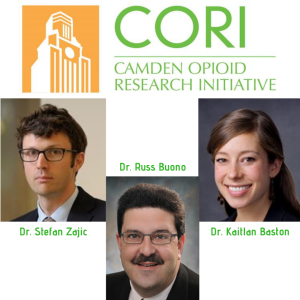
Friday Jul 05, 2019
Friday Jul 05, 2019
Listeners, I have a big favor to ask from all of you. The Podcast Award nomination season has begun! It’s a people’s choice type of award. In order to be in the running I need listeners like you to nominate the show. DNA Today was nominated back in 2015 and 2016. It would be such an honor to be nominated again.In order to be in the running though, I need 2 minutes of your time. It’s very simple…Go to PodcastAwards.com and enter “DNA Today” for the Science and Medicine category. That’s it!Now this closes July 31st, 2019. Don’t forget, if you can please go nominate the show if you enjoy listening! It really helps to increase visibility so other people can also benefit from learning through the show. Thanks in advance! I really appreciate the support for the show.The Camden Opioid Research Initiative has a three pronged approach as outlined below.1) A biobank for blood and brain samples taken from people who have died from overdose as well as family members who are interested in donating.2) A prospective clinical study of chronic pain patients to determine the interplay between genetic and biological risk factors for opioid addiction.3) A clinical study of people currently being treated for opioid addiction to investigate what treatments work best for different genetic makeups.Three scientists from the project join me:Dr. Stefan Zajic, the scientific lead on the project.Dr. Kaitlan Baston, the director of Addiction Medicine at Cooper University Health Care.Dr. Russ Buono, a Professor of Biomedical Sciences at Cooper Medical School of Rowan University.On This Episode We Discuss:-Types of Genetic Testing for Opioid Susceptibility-Non-Genetic Factors to Opioid Dependence-Brain Biobank of Opioid User Tissues-Brain Differences of Opioid Users-Potential Uses of Opioid Genetic ResearchStay tuned for the next new episode of DNA Today. New episodes are released on the first Friday of the month. With a few bonus episodes here and there. See what else I am up to on Twitter, Instagram, Facebook and iTunes. Questions/inquiries can be sent to Kira Dineen at info@DNApodcast.com.
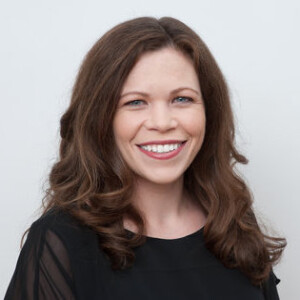
Friday Jun 07, 2019
Friday Jun 07, 2019
On This Episode We Discuss:Services WatershedDNA OffersMotivation Behind Writing “The DNA Guide for Adoptees”Differences in Genealogical Research for Adoptees Compared to General PopulationPreparing to Meet New Biological Family MembersAdvice for DNA Testing Adoptee Related SearchesDNA Testing for Children/Minors to Find Biological RelativesInsight for Adoptee’s Seeking Medical Information via DNA TestingNon-DNA Methods to Search for Lost Biological RelativesMy Heritage’s DNA Quest Project for AdopteesListen to episode #80 with My Heritage’s Rafi Mendelsohn to learn more.Since recording this project has expanded to offer more free kits!Resources for the Adoptee/Donor CommunityFacebook Groups: DNA Detectives and Adoption Search and ReunionAdopteeRightsLaw.comLook out for our “The DNA Guide For Adoptees” book giveaway in the next couple days on social media (links below)!Stay tuned for the next new episode of DNA Today. New episodes are released on the first Friday of the month. See what else I am up to on Twitter, Instagram, Facebook and iTunes. Questions/inquiries can be sent to Kira Dineen at info@DNApodcast.com.
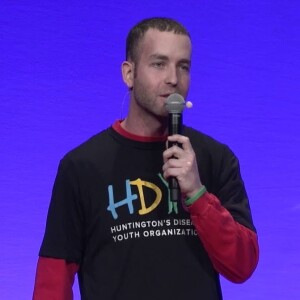
Friday May 03, 2019
Friday May 03, 2019
Seth Rotberg, a rare disease patient advocate and motivational speaker, joins the show to share his perspective on Huntington Disease (HD).From 2011 – 2015, Seth served on the boards for the HDSA National Youth Alliance (NYA) and HDSA Massachusetts Chapter to continue his efforts in the HD community. He became the President of the HDSA NYA in 2012 and HDSA Massachusetts Chapter in 2013, where he led a group of dedicated volunteers to plan and execute fundraising and educational events.Seth is still an active member of the Huntington Disease community and currently sits on the Board of Trustees for the Huntington’s Disease Youth Organization (HDYO). As a member of the working board, he connects young people to the proper social, emotional, and educational resources needed when coping with HD. His hope is to be a mentor for young people who face adversity by sharing how taking control of his HD journey has given him opportunity, fulfillment, and hope.On This Episode We Discuss:-How Huntington Disease Affects the Body and Mind-Seth’s Journey with Huntington Disease-Seth’s Family’ History and Experience with Huntington Disease-Genetic Testing Process and Seth’s Advice-Importance of a Support System-Inspiration Behind Seth Becoming a Patient AdvocateTo read and hear more from Seth check out his website, follow him on Twitter, watch his TED Talk and listen to his own podcast, Rare Unplugged.Stay tuned for the next new episode of DNA Today. New episodes are released on the first Friday of the month. See what else I am up to on Twitter, Instagram, Facebook and iTunes. Questions/inquiries can be sent to info@DNApodcast.com.
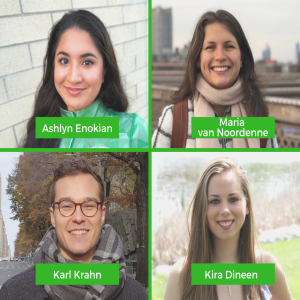
Friday Apr 26, 2019
Friday Apr 26, 2019
Happy Genetic Counseling Match Day! Today we are celebrating the genetic counseling graduate program match day by discussing how to prepare and what to expect during the first year. We also provide advice for applicants that didn’t match in this cycle and offer inspiration to apply next round.In a way this is a follow up episode from the application process discussions. If you are thinking about or planning on applying to genetic counseling grad schools check out those episodes. Episode 87 was the first part of this conversation where we discussed how to gather the experience and classes to have a competitive application. We also surveyed over 50 incoming genetic counseling students (enrolling Fall 2018) who went through the last application process, which was also the first time the Match System was used. In episode 97, the panel discussed the second portion of the application cycle: interviews, ranking, and matching.On This Episode We Discuss:Classes to Take to Fulfill Prerequisites before EnrollingManaging the FinancesLoans, Financial Aid, Budgeting, and JobsExtra Steps for International StudentsHealthcare, Visa, MovingFinding Housing and RoommatesFirst Year ClassesRotationsDisability and Genetic CounselingThesisStudent Mentor ProgramThe PanelKarl Krahn is a first year genetic counseling student at Sarah Lawrence College. He earned his BS in Biology from the University of the Fraser Valley in Abbotsford, British Columbia, Canada at the end of 2017. During his undergraduate career, Karl performed research in bioethics at UFV and research on food systems in Nairobi, Kenya at Aga Khan University. He volunteered at a genetic counseling office and was a mentor for his community’s youth mentorship program. His professional interests include, oncology, variant research, and, his personal favourite, the murky waters of how athletic performance is intertwined with genetics.Maria van Noordenne is from British Columbia, Canada. She earned her BS in Psychology (with a Biology focus) and a minor in Statistics, as well as her MS in Cognition and Brain Sciences from University of Victoria in 2017. She spent time her time volunteering at a transition house crisis line and at medical genetics in Victoria General Hospital. She also worked as a crisis counselor at a youth shelter in addition to contracting research projects, including a few months in Nunavut, Canada. She is excited to be completing her first year of genetic counseling at Sarah Lawrence College.Ashlyn Enokian is a first year genetic counseling student from Brighton, Michigan. She earned her BS in Biology and a minor in Criminal Justice from Grand Valley State University in 2017. Her journey into the field of genetic counseling began with advocacy work through Crisis Text Line and Help Pregnancy Crisis Aid. She worked as a genetic counseling assistant in cancer genetics at Saint Joseph Mercy Hospital, pediatric genetics at the University of Michigan, and laboratory genetics at Progenity, Inc. Her professional interests include fertility, neurogenetics, and strategies to increase diversity in the field. She acts as a student representative of Sarah Lawrence College’s Class of 2020 and is a genetics graphic design intern at My Gene Counsel.Kira Dineen hosts DNA Today: A Genetics Podcast (and radio show), which was founded in 2012 and features over 100 episodes interviewing genetic counselors, patient advocates and other genetic experts. The show was nominated in the 2015 and 2016 Podcast Awards. She also hosts other healthcare podcasts including Advancing Dentistry and Insight Says: A Mental Health Podcast. Kira is the Communications Lead at My Gene Counsel, a digital genetic counseling company. She is also a member of National Society of Genetic Counselors’ Digital Ambassador Program (aka #NSGCGenePool). Kira received her in Bachelor's of Science degree in Diagnostic Genetic Sciences with a concentration in Cytogenetics at the University of Connecticut, and has a certification as a cytogenetic technologist. Along with Ashlyn, she is a student representation in Sarah Lawrence College’s Genetic Counseling Class of 2020.Interested in getting in contact with a current student at a specific school? Shoot us an email (info@DNApodcast.com) and we will work our networks to connect you. Don’t hesitate, we love networking with fellow future genetic counselors!Stay tuned for the next new episode of DNA Today on May 3rd, 2019 with patient advocate and motivational speaker Seth Rotberg who shares his experience with Huntington Disease in honor of awareness month. New episodes are released on the first Fridays of the month and sometimes there are bonus episodes, like this one, on other Fridays! See what else I am up to on Twitter, Instagram, Facebook and iTunes. All questions, comments, and inquiries can be sent to info@DNApodcast.com.
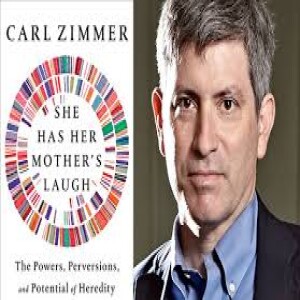
Friday Apr 05, 2019
Friday Apr 05, 2019
This show is a landmark episode, number 100! I want to sincerely thank all you listeners, new and old, for tuning in. It’s been such a fantastic experience over the last 7 years to share news and interviews with you all and learn along with you. I hope you’ve enjoyed listening to the shows as much as I have have enjoyed recording and producing them.Author Carl Zimmer joins me to discuss new and old hereditary concepts. He writes the Matter column for the New York Times and has contributed to The Atlantic, National Geographic, Time and Scientific America. He has won the Stephen Jay Gould Prize among many other honors for his journalism. Zimmer teaches science writing at Yale University. His books include Parasite Rex, Evolution: The Triumph of an Idea, Microcosm: E. coli and the New Science of Life, and his latest, She Has Her Mother’s Laugh: The Powers, Perversions, and Potential of Heredity which we discuss on this episode. She Has Her Mother’s Laugh has been named the 2018 science book of the year by the Guardian and Amazon. It was also included in 2018 book lists on The New York Times, Publishers Weekly, Kirkus Review, Mental Floss, Science Friday among others.On This Episode We Discuss:Early History of our Understanding of HereditaryEver Changing Definition of HereditaryTypes of Hereditary including Vertical vs. HorizontalPercentage of Shared DNA (or lack thereof) between RelativesHuman Interest in AncestryLearn more about Carl Zimmer on his website and stay updated with his writing by following him on Twitter and Facebook. You can also check out his book, She Has Her Mother’s Laugh on Amazon as well as the book he mentioned, “The Tangled Tree: A Radical New History of Life” by David Quammen.If you are interested in joining a genetic counseling book club check out Book Zebras! Their April book is Resurrection Lily by Amy Byer Shainman who I interviewed back in episode 25 of the show.If you enjoy this show, you might also be interested in the other healthcare podcasts I host and produce, Advancing Dentistry Podcast and Insight Says: A Mental Health Podcast. They are both monthly podcast where I interview experts in their respective fields.Stay tuned for the next new episode of DNA Today on May 3rd, 2019. New episodes are released on the first Friday of the month. See what else I am up to on Twitter, Instagram, Facebook and iTunes. Questions/inquiries can be sent to info@DNApodcast.com.
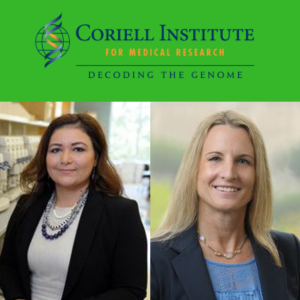
Friday Mar 01, 2019
Friday Mar 01, 2019
Two leaders from the Coriell Institute for Medical Research join the show to discuss biobanking. Nahid Turan, Chief Laboratory Officer, and Alissa Resch, Chief Scientific Officer, lead separate aspects of the Institute scientific efforts.Coriell is known for its impact in the world of biobanking. If you’ve ordered biological materials in the past for research, there’s a good chance you’ve ordered from them before. In its 65 year history, Coriell has partnered with many federal, private and nonprofit organizations, offering expertise in the collection, processing, storage and distribution of biological materials, and in the process built one of the most diverse and important collections of biomaterials in the world. It’s because of their collection that endeavors like the Human Genome Project were possible and that the science of personalized medicine thrives today.On This Episode We Discuss:Definition of Biobanking and ProcessSample Tissue and Species TypesNumber of SamplesDisease RepresentationApproach to Finding Specific SamplesResearch Access and ShipmentOrganizations, Institutions and Projects SuppliedIncluding the Human Genome Project and the 1,000 Genomes Project!Managing Big Bio DataTo learn more about Coriell head over to their website, specifically their biobanking page. Stay updated with their latest news by following them on Twitter.Stay tuned for the next new episode on April 5th, 2019. This will be the 100th episode of DNA Today! To celebrate I interview Carl Zimmer, a popular science writer for the New York Times and has also contributed to The Atlantic, National Geographic, Time and Scientific America. He has won the Stephen Jay Gould Prize Among many other honors for his journalism. Zimmer teaches science writing at Yale University. His books include Parasite Rex, Evolution: The Triumph of an Idea, Microcosm and his latest, She Has Her Mother’s Laugh which we will be discussing on next month’s episode. So tune back in on April 5th to hear the interview!New episodes are released on the first Friday of the month. See what else I am up to on Twitter, Instagram, Facebook and iTunes. Any questions/inquiries are welcome and can be sent to info@DNApodcast.com.
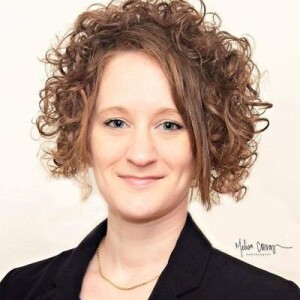
Friday Feb 01, 2019
Friday Feb 01, 2019
To celebrate and honor Rare Disease Awareness month (February) Lydia Seiders joins me on the show. She is a volunteer Maryland State Ambassador for NORD, the National Organization for Rare Disorders, through NORD’s advocacy arm the Rare Action Network. Her daughter was diagnosed with aplastic anemia, a form of bone marrow failure. This motivated Lydia to become an Ambassador for NORD. In this role, she leads about 200 network members across the state to raise awareness for approximately 600,000 patients affected by a rare disorder. Lydia leads educational initiatives and develops state-based campaigns to increase patient awareness. She partners with advocates nationwide to act on policy impacting the rare disease community.Lydia also works closely with the Aplastic Anemia and MDS International Foundation and the national bone marrow registry - Be the Match. She assists patients and families globally obtain reputable resources for bone marrow failure. Most recently she began collaborating with RARE Revolution Magazine, a dedicated free rare disease publication. She will help to share in the direction of the Rare Revolution movement.On This Episode We Discuss:Her daughter, known as #EmmaStrong, diagnosis of aplastic anemiaDiagnostic journeyAplastic anemia symptoms and causeNIH’s role in Emma’s treatmentCurrent research for aplastic anemiaLydia’s role as a state ambassador for NORDEducational initiatives and campaigns for the rare disease communityNORD’s resources for parents and caregiversAdvice for parents and caregivers of a loved one with a rare diseaseResources Mentioned During The Show:National Organization for Rare Disorders (RareDiseases.org)RareAction.orgWhen signing up, their system will link you to your state’s RAN by your zip codeThe Aplastic Anemia and MDS International FoundationMaryland’s Rare Action Network Facebook PageRAN is active in all 50 states, listeners can find their state to get involvedBe The Match (Emma’s Page)Learn how to join the bone marrow registryLearn more about Emma in this blog post part 1, part 2 and part 3. Stay updated with Lydia by following her on Twitter and connecting with her on LinkedIn.Don’t forget to raise awareness this month (and every month) for rare diseases, especially on Rare Disease Day which is on Thursday, February 28th 2019.Stay tuned for the next new episode of DNA Today on March 1st. New episodes are released on the first Friday of the month. See what else I am up to on Twitter, Instagram, Facebook and iTunes. Questions/inquiries for my guest, Lydia Seiders, or myself can be sent to info@DNApodcast.com.Don’t hesitate, we love hearing from listeners.
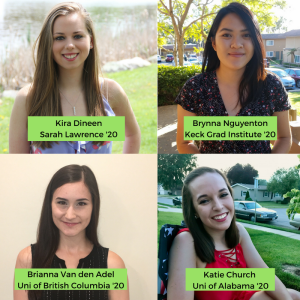
Friday Jan 04, 2019
Friday Jan 04, 2019
A panel of four incoming genetic counseling graduate schools discuss the application process. This is part two of two podcasts, discussing the second portion of the application cycle: interviews, ranking, and matching. Episode 87 was the first part of this conversation where we discussed how to gather the experience and classes to have a competitive application.We also surveyed over 50 incoming genetic counseling students (enrolling Fall 2018) who went through the last application process, which was also the first time the Match System was used. Their feedback has also been summarized on episode 87’s blog post . We hope prospective and applying students find this summary and these two episodes helpful!On This Episode We Discuss:Overall Application TimelineSchools Applied vs Interviews Invites ReceivedPreparation Strategies for InterviewsA Typically Interview Day ScheduleTypes of Interview QuestionsMethods to Keep Track of Schools/InterviewsHow the Match System WorksFactors Used to Assess and Rank ProgramsReasons for Our Number 1 PickMatch OutcomesThe PanelKira Dineen hosts DNA Today: A Genetics Podcast (and radio show), which was founded in 2012 and features nearly 100 episodes interviewing genetic counselors, patient advocates and other genetic experts. The show was nominated in the 2015 and 2016 Podcast Awards. She also hosts other healthcare podcasts including Advancing Dentistry and Insight Says: A Mental Health Podcast. Kira is the Communications Lead at My Gene Counsel, a digital genetic counseling company. She is also a member of National Society of Genetic Counselors’ Digital Ambassador Program (aka #NSGCGenePool). Kira received her Bachelor's of Science degree in Diagnostic Genetic Sciences with a concentration in Cytogenetics at the University of Connecticut. She is in Sarah Lawrence College’s Genetic Counseling Class of 2020.Brynna Nguyenton is a first year genetic counseling student at The Keck Graduate Institute. She earned her BS in Biology with a minor in Cognitive and Behavioral Neuroscience from San Diego State University in 2016. Brynna’s professional interests include accessible healthcare, neuropsychiatric and cancer genetics, and promoting scientific literacy and education in the community. She is also the lead staff contributor of the genetic counseling blog, Maps and Genes. Outside of genetic counseling, she enjoys thrift shopping, traveling and trying new foods, and spending time outdoors with her Husky/Shepherd puppy, Kenobi.Katie Church is a member of the 2020 Genetic Counseling class from The University of Alabama at Birmingham. Originally from Colorado, in 2017 she graduated with a Bachelors of Science in Biology with minors in Psychology and Spanish from the University of Nebraska-Lincoln. Throughout undergrad she spent time volunteering with adaptive recreation and a domestic violence hotline, helping with research, shadowing various genetic counselors, and staying active in her sorority. Post graduation she worked as a research assistant in a fly genetics lab and a high school cheer coach.Brianna Van den Adel was born and raised in the small northern town of Kitimat, B.C., Canada. She received her Bachelor of Science in Biochemistry & Molecular Biology and Psychology at The University of Northern British Columbia in 2017. With her acceptance into the Master of Genetic Counselling program at The University of British Columbia, she looks forward to completing her degree and working towards introducing the field of genetic counselling to Prince George, and serving the northern communities of British Columbia.Stay tuned for the next new episode of DNA Today on February 1st. As announced last month, the updated 2019 release schedule is new episodes on the first Friday of every month. See what else I am up to on Twitter, Instagram, Facebook and iTunes.Don’t forget to check out the first part of this conversation in episode 87 where we discuss how to gather the experience and classes to have a competitive application.Questions/inquiries about the application process for the four of us can be sent to info@DNApodcast.com. Interested in getting in contact with a current student at a specific school? Shoot us an email and we will work our networks to try and connect you! Don’t hesitate, we love networking with fellow future genetic counselors. We look forward to seeing some of you at your interviews!
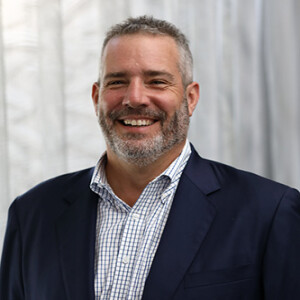
Friday Dec 21, 2018
Friday Dec 21, 2018
Jim Cavan, CEO and President of Backpack Health is featured on this episode. He has great passion for helping healthcare companies tackle systemic problems, and 20 years of executive health research and startup leadership experience. The development of Backpack Health is the result of several key goals of his, including improved access to and control of medical information, and less obtrusive collection of research data.Backpack Health is a mobile and cloud-based app that helps people with chronic, serious and rare health concerns better manage their health journeys. The Backpack Health mission is to empower patients by making it easy for them to access, own and control all their health information to support better health for themselves, their loved ones and their communities. Just like a real backpack, the portable, multimodal, multilingual app allows users to carry around what matters most – their personalized, comprehensive medical information and documents – in one central location. Backpack Health also provides a platform for organizations to engage patients, collect up-to-date data and build communities around the globe.On This Episode We Discuss:How Backpack Health StartedJim’s Role at Backpack HealthBackpack Health’s Services for Patients and CaregiversSpecific Groups to BenefitLanguages and Countries CoveredHow Users Can Access and Edit Their InformationData Security and SharingBackpack Health’s Role In ResearchPatient Advocacy and ResourcesLearn more on Backpack Health’s website and stay updated with them on Twitter, Facebook, and Instagram.Stay tuned for the next new episode of DNA Today on January 4th, 2019. This episode is part 2 of the discussion about the genetic counseling graduate school application process. In part 1 on episode #87 we discussed preparing for applications, how to apply to programs, and general advice. We also surveyed over 50 incoming students to capture more insight. I will be joined by the same panel of guest who are fellow genetic counseling students and we pick up where we left off by discussing the second half of the application process: interview, rank, and match.The show will be shifting to a new release schedule for 2019 by releasing episodes on a monthly basis on the first Friday of every month.See what else I am up to on Twitter, Instagram, Facebook and iTunes. As always it’s great to hear from listeners, so feel free to send your questions and inquiries to info@DNApodcast.com.
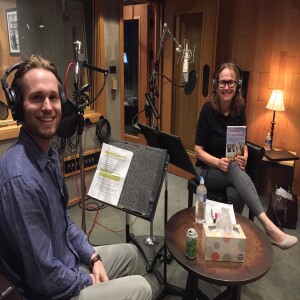
Friday Dec 07, 2018
Friday Dec 07, 2018
Author Laura Kieger and her son, Dr. Alexander Kieger, share their family’s courageous, century-long struggle with a rare genetic cancer syndrome, Familial Adenomatous Polyposis.Familial adenomatous polyposis is a rare, genetic cancer predisposition syndrome caused by a deletion mutation in the APC gene on chromosome 5. By the age of 40, nearly 99% of untreated patients will develop cancer.This is the dark shadow that has lingered over their family since at least 1911, when Mary Regan Baker was seen at Mayo Clinic in Rochester, Minnesota for symptoms of a disorder that would become commonplace in her descendants.Through deeply touching personal stories of love, heartbreak, and hope, Laura’s book, Summer’s Complaint, explores the meaning of family and how tragic loss leads to the remaking of life in the face of a rare genetic mutation.Laura obtained a Bachelor of Arts degree from the University of Minnesota (Twin Cities) and a Master’s degree in Human Development from St. Mary’s University. Dr. Alexander Kieger is a Vascular and Interventional Radiologist at Vascular Institute of Virginia. He graduated from Drake University with a Bachelor of Arts degree in Biochemistry and Cell and Molecular Biology. He obtained his Doctor of Medicine from Northwestern University’s The Feinberg School of Medicine.Enter the GIVEAWAY on Twitter, Facebook, LinkedIn and Instagram to WIN 1 of 10 signed copies of Summer’s Complaint. The giveaway ends on December 14 at midnight eastern time, and winners will be randomly selected. To be eligible for entry you must have a US shipping address. You can enter giveaways on all social media networks, however a maximum of one copy will be awarded to each person.You can also buy the book directly on Amazon. Learn more about the Keiger family on Laura’s website. Stay updated by following Laura on Twitter and Dr. Alexander Kieger on Twitter and Instagram.Stay tuned for the next new episode of DNA Today on December 21st, I interview the CEO/President of Backpack Health, Jim Cavan. Backpack Health is a mobile and cloud-based app that helps people with chronic, serious and rare health concerns better manage their health journeys.New episodes are released on the first and third Fridays of the month. Can’t wait? There are 94 other episodes to explore in the meantime.See what else I am up to on Twitter, Instagram, Facebook and iTunes. Questions/inquiries can be sent to Kira at info@DNApodcast.com.








